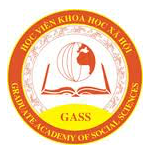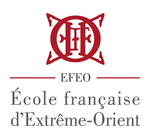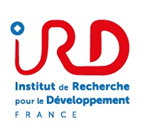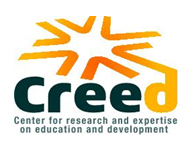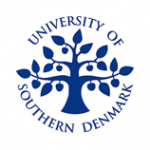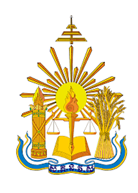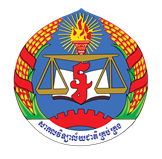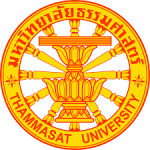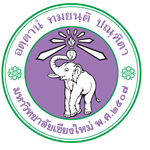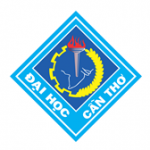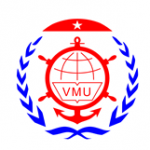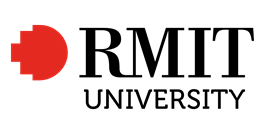
Partners informations
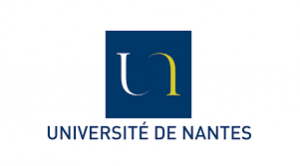
University of Nantes (UN), FRANCE
Website : Universite de Nantes
The University of Nantes was founded in 1961, but it finds its origins in the University of Brittany founded in 1461 by François II, Duke of Brittany. The University offers to every student a training integrating the last experiences of the research and allowing them to realise their project and their occupational integration. It offers to its students a variety of departments: human arts and sciences, sciences and techniques, technology, health, economy and management, law, in order for them to build a project of studies in all the domains of the knowledge.
The University of Nantes implemented a policy of students, researchers and skills exchanges with many structures in the world to:
-Facilitate the intellectual and scientific relations,
-Develop the research and the training,
-Support the development of their organisation and their infrastructures.
One of the major axes of its international strategy is the strengthening of its presence in Europe and in developed or developing countries, through the implementation of a dynamic policy, focused on a number limited but solid partnerships.
This policy aims at increasing the mobility of its students at Master’s degree and doctorate levels, at developing international Master’s degree and at integrating all the activities of research into international networks.
Lionel Lemiale
Position: Project Coordinator
Address: Université de Nantes – France
Email : Lionel.Lemiale@univ-nantes.fr
Ria Deniska
Position: Project Manager
Email: ria.deniska@univ-nantes.fr
Stephane Lagrée
Position: International Coordinator
Address: Académie des Sciences Sociales du Vietnam. Cellule de Coopération Francophone. 1B Lieu Giai, bureau 204, Hanoi
The Graduate Academy of Social Sciences (GASS), VIETNAM
Website : http://gass.edu.vn/SitePages/News_Detail.aspx?categoryId=68&itemId=43453
Established according to the Prime Minister’s Decision No. 35 / QD-TTg on 10/01/2010 by The Graduate Academy of Social Sciences (GASS) is a public educational institution in the national education system of the Socialist Republic of Vietnam. As institute of Vietnam Academy of Social Sciences is to train and grant Master and Doctorate Degrees in Social Sciences in accordance with Educational law; unifies the central management headquarter of all graduate education of institutions under the Vietnam Academy of Social Sciences; in cooperating social sciences scientific research in training; and providing consultation on high-quality human resource training and development.
On the basis of the unification of 17 educational institutions under the Vietnam Academy of Social Sciences, the Graduate Academy of Social Sciences is the only educational institution of Vietnam that is qualified to provide solely Master and Doctorate programs in Social Sciences.
Our Philosophy: Quality –Friendliness–Development
Our Vision: Become a leading educational institution in the region
Our Mission: Provide high- quality training and facilities for excellent graduates
Graduate Academy of Social Sciences has its headquarter located in 477 Nguyen Trai Street, Hanoi, Vietnam, and two branches located in Ho Chi Minh City and Da Nang.
Functions:
- Training and issuing Master and Doctoral degrees in Social Sciences in accordance with the law.
- Conducting scientific research in Social Sciences and Humanities and providing professional training for officials and civil servants.
- Providing consultation on high-quality human resource training and development.
École française d’Extrême-Orient (EFEO), FRANCE
Website : https://www.efeo.fr
The EFEO, a public institution under the aegis of the French Ministry of Higher Education and Research, studies the civilizations of Asian through the humanities and social sciences. From India, to China and Japan, and covering all of Southeast Asia, the EFEO’s research areas include almost all the societies have been under Indian or Chinese influence in the course of history. Leading scholars working at the EFEO’s 18 centres and branch offices in Asia have been essential in the development of the School’s research program. Interdisciplinary projects bring together leading scholars in the fields of anthropology, archaeology, history, philology, and religious studies. Since the vast majority of EFEO members carry out field studies in Asia, the emergence of contemporary issues is obviously of relevance for the School. For decades the EFEO and its Asian centres have worked in many Asian and European partnerships. Today centres in Pondicherry, Chiang Mai, Siem Reap, Hanoi, Hô Chi Minh city, Vientiane and Jakarta have their own premises, whereas several EFEO branch offices are hosted by prestigious universities, research institutes and museums. The EFEO regularly welcomes scholars for extended periods of field study in its Asian centres, particularly for EFEO led research projects. The EFEO is now in the centre of an international network of leading scholars in Asian studies. Scholarly research is the key aim of the School, yet the EFEO’s academic staff are also committed to training scholars in Asian studies. This demands a high degree of specialization and often requires unique expertise gained in field studies. The supervision and training of scholars is coordinated in France, under the guidance of various doctoral programmes and in cooperation with universities and schools, and in the EFEO’s Asian centres. The EFEO headquarters are located at the “Maison de l’Asie” in Paris, which houses its central library, and is also a dynamic platform for scholarly activity.
Institut de recherche pour le Développement (IRD), FRANCE
Website : https://www.ird.fr/
The French National Research Institute for Sustainable Development (IRD) is a French public research institution under the joint authority of the French Ministry of Higher Education and Research and the Ministry of Foreign Affairs and International Development. IRD conducts inter-disciplinary research in the view of achieving the Sustainable Development Goals and to design solutions which are adapted to the challenges that humans and the planet are facing: pandemics, climate change, food security, water management, humanitarian and political crises, etc…
Via its network and presence in more than fifty countries, it takes an original approach to research, expertise, training and knowledge-sharing, to the benefit of countries and regions that make science and innovation key drivers in their development. It operates internationally from its headquarters located in Marseille, France, its regional delegations and its representations in the partner countries. It currently employs more than 2100 people, including 820 researchers distributed in 56 joint research units.
In addition to its research activities, IRD pays great attention to training and capacity building in the South. It has thus an important activity in supporting the scientific communities of the South via the organization of university courses (assembly of Masters for example) and punctual training (training workshops) as well as training through research (hosting of students in Master and PhD).
All IRD’s research units which are directly involved in the WANASEA project have a long history in conducting research and capacity building activities in the partner countries, notably the Unit for Mathematical and Computer Modelling of Complex Systems (UMMISCO), the Unit Local heritage and governance (PALOC), the Unit Governance, Risks, Environment and Development (GRED) and the Unit Development, Institutions and Globalization – (DIAL).
Center for Research and Expertise on Education and Development (CREED), FRANCE
Website : https://creedev.org/en/2020/02/03/wanasea-en/
CREED is a company specialized in international cooperation for higher education and research. Our ambition is to link academic research to professional expertise for mutual benefit. Our decentralized structure draws on a rich network of international experts, which allows us to be flexible and agile in meeting the needs of a range of clients.
At CREED, we recognize that meaningful research requires more than just scientific knowledge. Without specific peripheral abilities, such as writing research proposals, managing financial and human resources, fostering leadership, writing in English or communicating properly, scientific skills are useless. We also believe that a strong research environment is key for research to contribute to development. This why strengthening higher education and research systems in developing countries is our priority.
CREED offers a range of support services critical to ensure the success of research for development projects:
– Tailored trainings on the different phases of research project cycle;
– Ex ante evaluation of scientific cooperation projects;
– Long-run project monitoring and mentoring;
– Project writing services;
– Formulation of institutional diagnostics and strategic planning.
CREED also participates to partner’s research initiatives and, based on the lessons learned through its experience, produces knowledge related to higher education and development.
The University of Southern Denmark – Department of Environmental and Business Economics (SDU), DENMARK
Website : https://www.sdu.dk/en/om_sdu/institutter_centre/i_miljo_og_erhvervsoekonomi/forskningsgrupper/mere
The Department of Sociology, Environmental and Business Economics, University of Southern Denmark is located on the Esbjerg Campus. Ultimo 2016, there are around 50 researchers, of which 7 are Ph.D. students. The core research profile of the Department is focused around analyses of resources from a social, economic and business economic perspective. Resources are defined as both natural and knowledge resources as well as social capital. A united element in our research approach is therefore the understanding of economic activities as resource based – not only as using resources but also as the creation of resources. Natural resource based industries build to a very large extent on both technical progress and knowledge resources.
The Department is leading the Centre of Fisheries and Aquaculture Management and Economics (FAME) – a research and PhD education network within resource economic and management.
In general, the Department focuses on environmental and resource economics and management research within 5 topic areas: 1) Risk analyses, risk management and risk communication. 2) Pollution and resource scarcity. 3) Theory of regulation, 4) Integrated models and 5) Ecosystem based management. The research group the Management and Economics of Resources and the Environment (MERE) is organizing this research.
Universitat de Barcelona (UB), SPAIN
Website : www.ub.edu/
Founded in 1450 the Universitat de Barcelona (UB) is ranked within the top highest public Universities in Spain, in terms of quality of the teaching, scientific productivity and quality of the research carried out by its members. UB has been participating in European research programmes since the 4th Framework Programme and manages an average of 150 European contracts a year. Since January 2010 the UB is part of the prestigious League of European Universities Research (LERU). The UB is second by size in Spain, with 63340 students, 141 master and 48 Ph.D. programmes and 5 311 lecturers and researchers (2013-2014 data). The UB has 6 campus in Barcelona and offers a great number of formation proposals, including human, health and experimental sciences and engineering.
The UB is the only Spanish University invited to join the European Research Universities League (LERU) which groups the best 21 intensive research universities in Europe. The UB has 314 research groups recognised by the Autonomous Government, and 14 Research Institutes. Quite all the researchers participating in the project are members of the IdRA (The Water Research Institute of the University of Barcelona), with more than 100 scientists/professors from 9 faculties.
The research group “Sanitary, Economic and Cooperative Hydrology” is agreed as Consolidated Research Group by the Catalan Regional Government. Cooperative work has been undertaken with partners of South- and Central America, North of Africa and Asia. Part of the members are leading the Cooperation activities of the University of Barcelona through the Mon-3 and Solidaritat UB foundations.
Research projects under several programmes of the EU have been undertaken (Aquarec, Aquasyn, Reclaim Water, Mediwat…) and other funded by Spain and Catalonia cooperation agencies (in VietNam, Bolivia, Costa Rica, Morocco, Senegal and other countries) have been developed. Research contracts have also been funded by private companies in Spain and Catalonia.
Institut de Technologie du Cambodge (ITC), CAMBODIA
Website : http://www.itc.edu.kh/index.php/news-events/210-wanasea.html
The Institute of Technology of Cambodia (ITC) is one of the Cambodia’s higher education institutions and the leading university in Cambodia in Engineering and Sciences.The goals and objectives of ITC are to provide students with a high quality education in the fields of engineering, sciences and technology. Students are provided with strong scientific bases and technical know-how which allow integration and evolution in the labor market. The Institute of Technology of Cambodia (ITC) has always kept close ties with its institutional partners and Francophone universities (France, Belgium) while remaining in cooperation with Asian university networks. This cooperation enables to ensure a high rate of student and faculty exchange through specific programs (Erasmus+, ASEAN Seed-net).
Beside academic activities, ITC contributes to the improvement of gender balance and alleviation of poverty with a policy of lower fees for women and scholarships for poor students. 70% of the students are from the provinces and 50% of the students receive a fellowship.
Today, undergraduate programs in 7 Engineering Departments allow graduating more than 600 bachelor students every year. Since 2010, ITC has developed research activities and master programs. A graduate school for master and doctoral students is being implemented. Environmental science and engineering is the most active research area at ITC with a high number of projects and two departments involved (Chemical and Food engineering, Rural and Environmental engineering). ITC is a coordinator of an important international program (SATREPS) combining environmental science, engineering and social sciences on the environmental and social issues of the Tonle Sap lake, the largest lake and protein stock in the whole region and a biosphere reserve for UNESCO. Pollution of the lake has increased due to human activity (tourism development, floating houses, erosion, intensification of agricultural activities) and lack of proper management.
Royal University of Law and Economics (RULE), CAMBODIA
Website : www.rule.edu.kh/docsxv
As a public institution of higher learning, the Royal University of Law and Economics provides teaching, research, and service programs that prepare students and enable faculty and researchers to address the needs of Cambodia and the surrounding region for sustainable development. The Royal University of Law and Economics (RULE) was originally founded in 1949 as the National Institute of Law and Economics, and then it was renamed many times based on the needs of society and the change of regimes. In 2003 it was renamed the Royal University of Law and Economics and became a public administrative institution in 2007.
In accordance with the Education Strategic Plan and Higher Education Vision 2030 from the Cambodian Ministry of Education, RULE has set its own strategic plan following the vision that will guide the university’s journey from 2015 through 2018 to respond to the emerging labor market.
RULE is divided into four Faculties: Law, Economics, Public Administration and Economic Informatics. It has around 15,000 students. It is structured around several offices: administrative, accounting, international relations as well as graduate and under-graduate programs.
It is to be noted that RULE is one of the two Cambodian higher education institution members of the ASEAN Universities Network. Aiming to achieve a high quality of education with international standards, RULE has broadly expanded its international collaboration with many qualified foreign universities to promote academic exchange. About 70 lecturers from numerous foreign universities are officially invited to give lectures to RULE’s students during the academic year. There are 17 permanent foreign lecturers who actively teach on campus. RULE currently has international agreements for academic exchange with a total of 19 foreign universities and research institutions. International cooperation is at the heart of the development strategy of RULE.
National University of Management (NUM), CAMBODIA
Website : num.edu.kh
National University of Management has a full accreditation status for public non-profit administration. Currently, there are roughly 11,000 students. In 2014, NUM passed a strategic plan (2014-2018) introducing its vision statement with “Excellence in Academics”. This vision stresses the importance of our university’s key mission, which is to improve and apply the best quality standards in education, research, and innovation. Currently NUM has seven main faculties: Faculty of Economics, Faculty of Finance and Accounting, Faculty of Tourism, Faculty of Information Technology, Faculty of Law, Faculty of Management and Faculty of Graduates Studies.
NUM has three ambitions initiative, which are aiming to improve the quality of education and research.. Between 2012 and 2017, NUM successfully implemented two research sub-projects, which are part of the World Bank’s Higher Education Quality and Capacity Improvement Project (HEQCIP). NUM is also among the key partner of the DOCtoral program in Khmer universities Strengthening the International Development of Environmental and maritime research (DOCKSIDE) funded by EU, Capacity Building in the field of higher education. NUM encourages researchers and faculty members to regularly publish articles in the University’s scientific journal “NUM Research Series”.
NUM has two doctoral programs. The first one is oriented towards Business Administration and it provides knowledge to advance understanding of management, marketing, accounting, finance and international business. The second one is more research oriented and aims to enable students to complete an extensive, independent research projects. NUM has an agreement with the University of Nantes on the creation of joint-doctoral program. NUM has many foreign partners from China, Japan, EU, USA, ASEAN and South Korea. NUM is involved in the International Mobility Programme for Academic and Knowledge Transfer (IMPACT), part of Erasmus Mundus.
Thammasat Business School, Thammasat University (TU), THAILAND
Website : http://www.tbs.tu.ac.th/en/
Thammasat University (TU) is Thailand’s second oldest university. Officially inaugurated on 27 June 1934 at Tha Phra Chan on the Rattanakosin Island and on the Bank of the Chao Phraya River. The University’s founder, Prof. Dr. Pridi Banomyong, originally named Thammasat the “University of Ethics and Politics”, reflecting its primary mission to offer higher education in the disciplines of law and politics to the new citizenry and prepare Thai people for their new democratic system. Hoping to make higher learning accessible to all, Thammasat began as an open university with 7,094 students enrolled in its first academic year.
Since its initial inception, Thammasat University has evolved from an open university for law and politics to a prestigious international research university offering all levels of academic degrees and producing cutting edge research across a broad spectrum of academic disciplines. The University has graduated more than 300,000 students since its founding who have gone on to make great contributions to the development and progress of Thailand and the world. Notable university alumni include former Prime Ministers, leading politicians and government figures, Bank of Thailand governors, supreme court judges, provincial governors, as well as experts in various fields.
Thammasat university will provide an experienced team from the Department of International Business, Logistics and Transport, Thammasat Business School (TBS). The team members have been involved with maritime management and research projects both domestically and internationally for more than 10 years. The Department when established was referred to as the Department for Maritime Studies. TBS is accredited by EQUIS and AACSB.
Regional Center for Social Science and Sustainable Development (RCSD), Faculty of Social Sciences, Chiang Mai University (CMU), THAILAND
Website : http://rcsd.soc.cmu.ac.th/
Chiang Mai University (CMU) is focused on comprehensive institution of higher education providing a wide range of academic programs. In the field of research, CMU has launched initiatives and development projects, the results of which are utilized to further advance standards of teaching, learning, and supporting social and economic development of the region and the country as a whole.
CMU has earned a reputation as an institution maintaining high academic standard and is also an established member of the ASEAN University Network, paving its way forward to be an Education Hub in the region. As internationalization continues as an essential factor in higher education development, CMU offers international undergraduate and postgraduate programs and has sought to enhance quantity and quality of research projects conducted at CMU through the constructive integration with partners worldwide.
Regional Center for Social Science and Sustainable Development (RCSD), Faculty of Social Sciences, CMU, works at the regional level supporting research activities, providing affiliation to international scholars and graduate students interested in development in the GMS and offering international M.A in Social Science program and supporting the operation of international undergraduate program: B.A. in Social Science, with the support of faculty members. Our main mandates are to:
- enhance research capacity and build a body of knowledge on social transformation in GMS countries;
- offer international graduate programs focusing on social sciences and development studies; and
- support training and provide research grants to researchers from GMS countries.
RCSD has in-house expertise of faculty members as well as graduate students working on the issues of resource management, agrarian, environmental change and conflicts. Our strength lies on critical social science perspective in understanding how communities negotiate changes coming from global, regional and national levels.
CAN THO UNIVERSITY (CTU), VIETNAM
Website : https://www.ctu.edu.vn/en/
Can Tho University (CTU) has a full accreditation status for public non-profit administration. Since its founding in 1966, CTU has been improving and developing itself to become an important state higher education institution in the Mekong Delta, a cultural, scientific and technical center of the Mekong Delta (MD) and Vietnam. It has an enrollment of about 54.000 undergraduate students; 3.000 students have been following Master programs; and around 300 students are PhD candidates. CTU has got over 2.000 staff members including nearly 1.200 teaching staff and 800 supporting staff. From a university with a few fields of study at the beginning, it has developed into a multidisciplinary university. Currently, it has nearly 100 undergraduates, 36 Master and 15 Doctoral academic programs. Every year CTU receives students on internship programs from the U.S, Belgium, Japan, the Netherlands, France and so on, or under agreements between their universities and CTU.
By located in the Mekong Delta – where strongly based on water and related natural resources due to its biggest agricultural production area in the entire country – CTU play a key role on researching and technology transferring, especially on water resources management and climate change response. Base on that fact, since 2008 the Research Institute for Climate Change (DRAGON Institute – CTU) was establishing with the mission of become an internationally recognized center of excellence for research and training on the impacts of climate change on major river deltas, and enhancing the resilience of delta communities and ecosystems to climate change.
Vietnam Maritime University (VMU), VIETNAM
Website : eng.vimaru.edu.vn
Vietnam Maritime University is a leading center for educating and training maritime experts, scientists providing to the national sea-ward economy of Vietnam. The University covers the majors of Navigation, Marine Engineering, Shipbuilding, Marine Electrical Engineering, Environment Engineering, Business Management, Maritime Business, Maritime Law, and so on. The University’s staff body consists of 975 lecturers and staff, in which there are 38 Prof./Ass. Prof, 107 DSc./PhD., 350 MSc and 160 First class Captain/Chief Engineer together with hundreds of internationally qualified seafarers. According to the current situation of social-economic development and the need of national security and defence, the Prime Minister has directed: “Building Vietnam Maritime University to become the Key National University” in order to make a breakthrough in training highly-qualified human resources, scientific research and create technologies for the maritime industry, shipbuilding and maritime economy of the country. Identifying as a key consultative organization for marine environment protection, specially water and natural resources management, one of interest topics of Vietnam and others, the University has not only developed the specific education programs in different levels (vocational, engineer, master and doctor), but also launched related research institutions, such as Maritime Research Institute (MRI), The Training and Advisory Center of Science and Technology for Marine Environment Protection (TCEP), etc. Besides, the University has experienced many scientific research at national level as well as join-research project with foreign partners on assessment of climate change and sea level rise impacts. The Vietnam Maritime University is willing to be partner of the project on Water and Natural Resources Management with regards to more and more significantly contribute to the country’s sustainable development.
RMIT University (RMIT–VN), VIETNAM
Website : https://www.rmit.edu.vn/
RMIT Vietnam was established in 2000 in Ho Chi Minh City as Vietnam’s first foreign-owned and operated international university. In 2016, the combined student population is approximately 6000 students with international students from around the world. RMIT Vietnam is an entity of RMIT University, Australia and operates as a private sector not-for-profit organisation. It provides internationally recognised in education and professional training for students, industry and local community. RMIT Vietnam was consecutively awarded with prestigious Golden Dragon Award from the Vietnamese Government in twelve years, recognising its excellence in education and research. RMIT Vietnam programs are global focus with concentration in research and innovation which are applicable, interdisciplinary and engaged with industry.
Our multicultural academics conduct research in wide range of areas, from green energy, robotics, information technology, transportation, green environment, sustainability, clean water to higher education, urban development, business operation in a transnational setting.
RMIT Vietnam has three doctoral programs, majors in Business, Management and Engineering. These research degree programs allow students to develop independent advanced research skills and demonstrate their knowledge expertise in the fields.
RMIT Vietnam has more than 20 national research partners, coming from research institutes, universities and industry in Vietnam and inherits the huge global research partners network of RMIT Australia with more than 100 partners. With ample research network and multicultural academics, RMIT Vietnam is dedicating to work on this project because of the relevance in the previous experience and research interests in contributing the knowledge back to the community. Recently, RMIT Vietnam is a full- partner of the project H2020- Innovation Action 730426 Urban GreenUp (H2020-SCC-2016-2017) of Euro 14 million.
ASSOCIATE PARTNERS
Global Development Network (GDN) – New Delhi (India)
Public International Organization
Website: http://www.gdn.int/
Role in the project : Advisor and broker of knowledge, contacts and resources
Agence Universitaire de la Francophonie (AUF) – Paris (France)
Association
Website: https://www.auf.org/
Role in the project : Financial support for three internships in Cambodia and Vietnam (in link with Work Package 2); Financial support to select of 8 additional trainees per year – excluding consortium WANASEA – to attend the AWP (Work Package 4).



